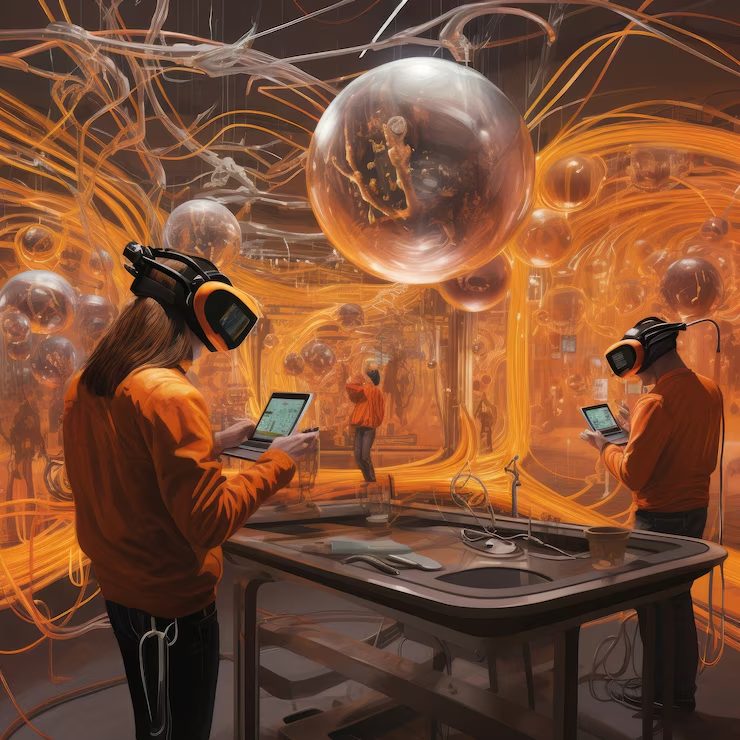Qofib explores the growing world of Green Tech Solutions for Smart Cities, highlighting the powerful intersection of innovation, sustainability, and intelligent urban planning. As cities expand and environmental concerns grow, modern infrastructure must adapt. Green technology is no longer an option but a necessity for cities aiming to improve quality of life while reducing their ecological footprint.
Green Tech Solutions for Smart Cities drive change through clean energy, efficient transportation, smart resource management, and sustainable construction. These advances contribute to healthier urban spaces and more resilient systems. The goal is to create environments where technology serves people and nature alike, offering smarter ways to live, work, and grow within modern city landscapes.
Clean Energy Integration in Urban Infrastructure
Green Tech Solutions for Smart Cities begin with clean energy. From solar panels on high-rises to wind-powered lighting in public parks, renewable energy sources are transforming urban environments. Cities now integrate solar grids, geothermal systems, and energy-efficient buildings into their core planning. These technologies not only lower carbon emissions but also reduce long-term energy costs. Through advanced battery storage and intelligent energy monitoring systems, cities are learning to store and use power more effectively, bringing lasting value to communities and businesses alike.
Smart Transportation and Electric Mobility
Urban transportation is a major contributor to pollution and congestion. Smart cities are tackling this issue with electric buses, bike-sharing programs, and digitally connected traffic systems. Green tech solutions focus on minimizing vehicle emissions by promoting electric vehicle charging networks and integrating real-time data for route optimization. This smart approach eases traffic flow, enhances safety, and provides cleaner commuting options for millions. By promoting shared mobility services and walkable city layouts, urban centers are reducing dependence on fossil fuels while improving mobility.
Sustainable Waste Management Systems
Waste is a constant challenge for growing cities. With green tech, waste management is becoming more efficient and environmentally conscious. Smart bins equipped with sensors alert sanitation teams before overflowing occurs. Waste-to-energy plants convert garbage into usable power. Recycling programs are driven by AI tools that sort materials with higher accuracy than manual systems. These innovations contribute to cleaner streets and less landfill dependence. Ultimately, they help cities move closer to a circular economy where materials are reused, repurposed, or transformed into energy.
Water Conservation Through Intelligent Systems
Smart water technology is crucial in urban sustainability. Green tech solutions for smart cities include water sensors that detect leaks in real time and digital irrigation systems that water parks and green spaces based on weather data. Water reuse technologies capture and purify greywater for use in landscaping and toilets. These solutions reduce water waste while maintaining the livability of public and residential areas. Efficient water use is particularly vital in cities facing droughts or rapid population growth, where every drop matters in securing the future.
Eco-Friendly Building Designs and Green Materials
Construction is being reimagined with green tech. Modern architecture embraces eco-friendly materials like recycled steel, bamboo, and insulation made from natural fibers. Smart windows adjust light and temperature automatically, while green rooftops provide insulation and community gardening space. Buildings are designed to consume less energy and water, earning certifications such as LEED. These environmentally responsible designs not only save money but also promote occupant health and well-being. They create neighborhoods that look good, feel good, and perform efficiently.
FAQs:
Q1. What are Green Tech Solutions for Smart Cities?
A: These are environmentally friendly technologies designed to improve sustainability and efficiency in urban areas, addressing energy, transport, and resource management.
Q2. How do these solutions benefit residents?
A: They create cleaner air, reduce traffic, lower utility bills, and improve overall urban living by promoting a healthier and smarter environment.
Q3. Are smart cities using renewable energy sources?
A: Yes, many smart cities are adopting solar, wind, and geothermal energy systems to reduce dependence on fossil fuels and improve sustainability.
Q4. Can green tech reduce pollution in cities?
A: Absolutely. Electric vehicles, waste management systems, and green buildings significantly lower emissions and improve air and water quality.
Q5. What role does data play in green smart cities?
A: Data helps monitor environmental factors, optimize resource usage, and guide decisions to enhance urban sustainability and public health.
Conclusion:
Green Tech Solutions for Smart Cities represent a future where urban growth and sustainability move together. These solutions not only solve current problems but also open the door to innovations that make cities smarter, cleaner, and more adaptable. As technology evolves and cities expand, the partnership between innovation and ecology will define how people live and thrive in urban spaces. Qofib remains committed to exploring and sharing powerful ideas that support this future.




